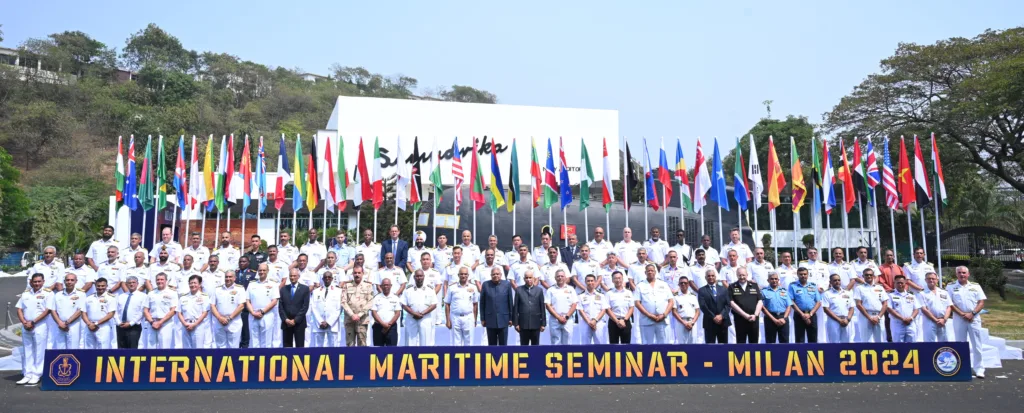India’s role in global politics is evolving, and the country is increasingly emerging as an international leader. This also applies to global ocean politics and naval affairs. India is a major sea power, and its navy increasingly acts as the guardian for the Indian Ocean, protecting trade and supporting its neighbors.
Experiencing Sea Power in Practice
In February, I had the opportunity to experience India’s new sea power in practice. The Indian navy invited me to give the opening talk at their bi-annual multinational naval exercise, called Milan. Milan is a Hindu word that can be roughly translated into English as referring to ‘meeting’, ‘gathering’ or ‘union’. Over 50 states participated in Milan. Held in the city of Visakhapatnam, the home of the navy’s Eastern Command, the event included a seminar, an exhibition, a city parade, and an exercise at sea.

Sea Power Today
Sea power is often equated with military capabilities, measured in numbers of ships, staff, or high-end technology, with the aircraft carrier often assuming the role as the main status symbol, given only seven nations possess that asset. Milan put some of the military strength of India’s navy on display, with the country’s two aircraft carriers along with a broad range of other assets — fighter planes, helicopters, special forces — being presented to the public.
Yet, contemporary sea power means more than counting and comparing military capabilities. Milan documented at least three forms of contemporary sea power: convening power, innovation, and responsibility.
Continue reading